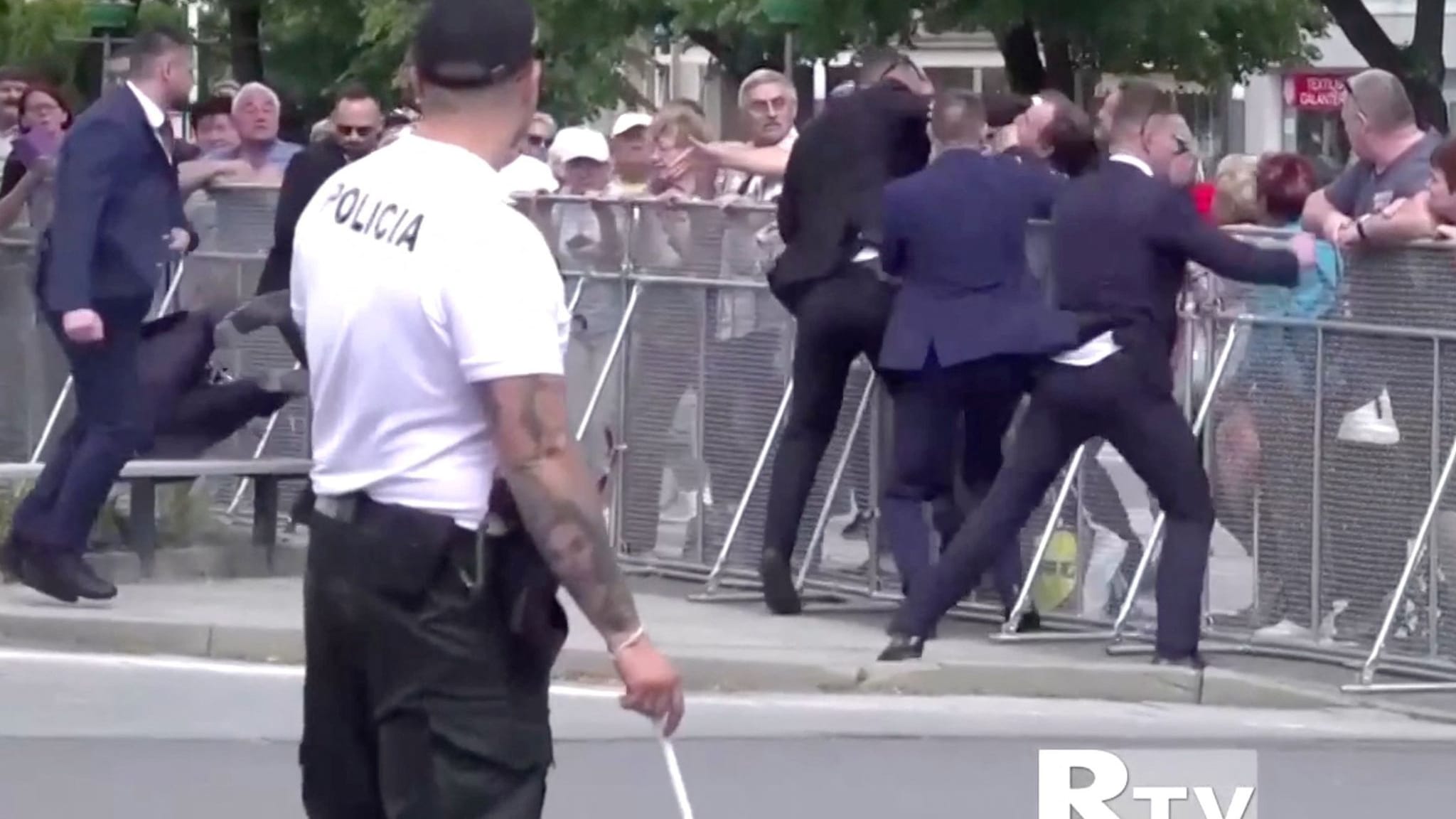At the end of 2023, the gaming platform Roblox announced that it had more than 71.5 million average daily active users. While it still remains best known to teens and their parents, evangelists see gaming hubs like Roblox and Fortnite as the new frontier of social media — another space where musicians will need to establish a presence if they hope to remain commercially relevant with younger listeners.
“Just the way every artist has an Instagram account and a TikTok, eventually everyone’s going to have a Roblox presence,” predicts Nic Hill, co-founder of the company Sawhorse Production. Hill has worked on Roblox projects for Olivia Rodrigo and Elton John, while Spotify, iHeartMedia and Warner Music Group have all launched Roblox experiences, and Sony Music has an in-house team developing music-focused games or experiences for both Roblox and Fortnite. (The latter boasts of having more than half a billion player accounts.)
In Roblox, players create an avatar and access an ecosystem of millions of games, many of which are developed by creative teenagers rather than massive gaming companies. Roblox lovers, nearly half of whom are female, pay to acquire Robux, a currency which allows them to buy an assortment of items for their avatars, and devote an average of 2.5 hours a day to roaming Roblox’s colorful, blocky virtual byways.
“There are different ways that they spend that time,” says Karibi Dagogo-Jack, head of music partnerships at Roblox. “Sometimes it’s playing a hardcore first-person shooter game. Sometimes it’s just hanging out with people that have an affinity for a thing they have an affinity for” — like music.
Fornite, in contrast, came to prominence as a fight-to-the-death survival game — its audience skews older than Roblox’s, and it’s male-dominated — but has been trying to diversify its appeal. Most notably, in March of 2023, Epic Games launched Unreal Engine for Fortnite (UEFN), which means creators can now develop their own worlds and experiences and make them available for the Fortnite audience, giving it some of the user-generated flair of Roblox.
Initially the music industry’s main way of engaging with Roblox and Fortnite audiences was through virtual concerts from the Lil Nas Xs and Travis Scotts of the world. But concerts, even virtual ones, are massive undertakings, often taking six months or more to develop and fine-tune, according to sources who have worked on them. That means concerts make sense primarily for a small number of big-name artists. In contrast, sources say putting together a Roblox shop may take closer to four to six weeks.
Even beyond budgetary constraints, concerts are one-time experiences in environments that prioritize constant interaction, an old-school approach to a new-school platform. “Artist events can have a lot more longevity,” says Ricardo Briceno, chief business officer of Gamefam, which built Harmony Hills, the virtual space that also serves as the home of Warner Music Group’s Roblox concerts.
Tony Barnes, founder of Karta, which worked on a popular Roblox experience for TWICE — a “fan hub” where supporters of the K-Pop group can play games, hang out virtually, and buy digital goods for their avatars — advises clients to think of the platform as “a new community channel that needs to be nurtured.” “You need to maintain your engagement,” he says. “It’s an always-on strategy.”
The music industry is now in a period that Hill describes as “a constant test and learn” with Roblox and Fortnite; some projects have generated serious revenue, while others are lucky to break even. “We’re still scratching the surface,” Briceno says.
Yet competition is already fierce. “Roblox is becoming a crowded space,” Hill notes. “Even if you’re a popular name and you show up, you can’t just expect everyone to be so excited and somehow find you. A lot of brands are marketing their experiences on the platform.”
Both Roblox and Fortnite incentivize artists and labels to treat the platforms as revenue generators. Artists can sell items on Roblox which players use to customize their avatars; the creator of the item takes home 30%, the creator of the experience — which could also be the artist — where the item is sold gets 40%, and the platform takes 30%.
Briceno sold ice antlers for Cher, for example, while TWICE has sold more than 3 million emotes, and an Elton John emote was purchased over 1.5 million times, according to a Roblox representative. Gavin Johnson, director of syncs and partnerships at the electronic music label Monstercat, oversaw the sale of a limited edition Ruby pendant necklace for 1,000,001 Robux (around $10,000) — “the highest primary sale ever on the platform.”
Over on Fortnite, if a label creates its own customized game-play environment, known as an “island,” they receive an “engagement payout.” (Roblox offers these too.) “40% of the net revenue from Fortnite’s Item Shop and related real-money purchases” is set aside for this purpose, according to Epic Games’ website, and then disbursed among island creators according to a complex calculation that takes into account the island’s ability to attract new players, re-engage dormant players, and keep both types coming back. (One gaming executive says that while the top UEFN experiences “drive a lot of gameplay and repeat visitors,” there’s a huge gap between the top few and most of the rest; a rep for Epic Games did not respond to a request for comment.)
For now, artists and labels often find it easier to jump into Roblox, in part because the barrier to entry is low — “basically anyone can create anything and sell it,” as Briceno puts it. In contrast, “Fortnite doesn’t allow studios or creators to sell items in-game,” says Michael Herriger, co-founder of Atlas Creative, which built iHeartMedia’s Roblox environment. “Everything that is a Fortnite skin [an outfit to customize a player’s look in the game], for example, comes directly from the Epic Games store.”
Selling items, designing artist-themed experiences — these can help raise awareness of an act and drive what Barnes calls “fan culture,” but may not involve actual music. Artists and labels are still trying to figure out what effective music integrations might look like. “The idea of using Roblox to drive discovery of your song is really cool, and maybe untapped,” Dagogo-Jack says.
When Metallica released 72 Seasons in 2023, the band partnered with five popular Roblox games to pipe its music into their creations. (“It’s a fantastic way to promote these brands, be it Metallica or any other musical artist,” says Kohl Couture, who goes by MiniToon, and created the game Piggy, which was part of the Metallica rollout.) Earlier this year, Sony Music unveiled a Fortnite game called Nitewave, where winners of a capture-the-flag-like experience get to control the soundtrack of Sony artists, including songs by Flo Milli and Calvin Harris.
While Briceno “very much believe[s] in a future where there will be music discovery in these platforms,” he’s not sure “the right tools are available in these platforms just yet.” One potential tool is being developed by the company STYNGR: An ad-supported boombox full of pre-cleared songs — at the moment, just tracks from Universal Music Group — that players can equip their avatar with.
In early experiments, when players need to turn on the boombox themselves, 15% do so; if the boombox starts automatically, 90% choose to leave it on. Session lengths increase by as much as 10% while players have the radio blasting musical accompaniment, according to Alex Tarrand, STYNGR’s COO and co-founder, and for a small group of “power users,” session lengths are tripling.
“The reason the engagement goes up is people stay longer in games if they like what they’re listening to,” Tarrand says. “Our thesis is that recorded music makes stuff better.”





